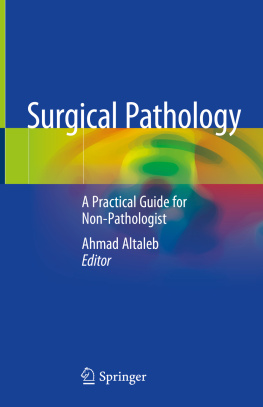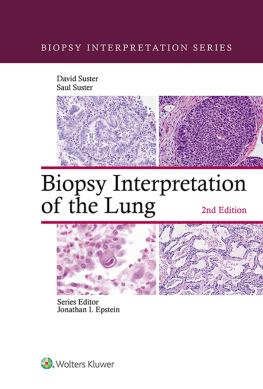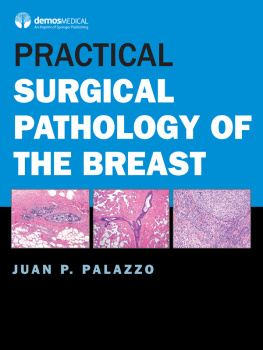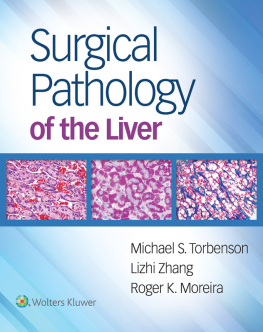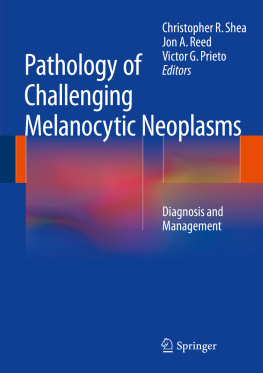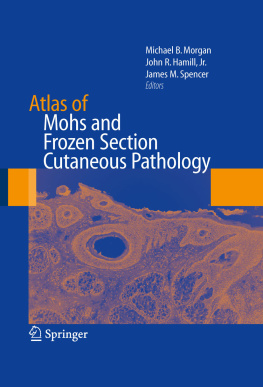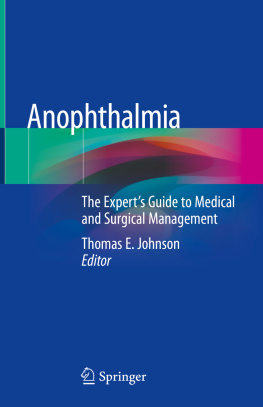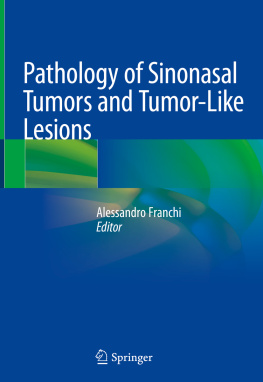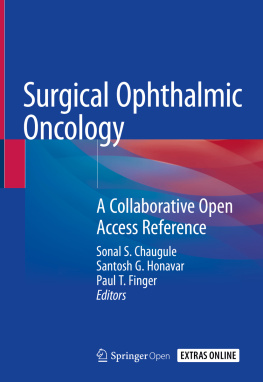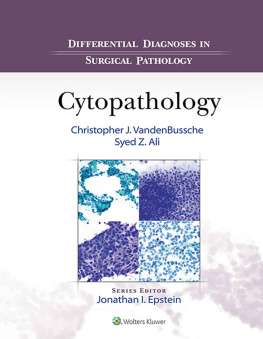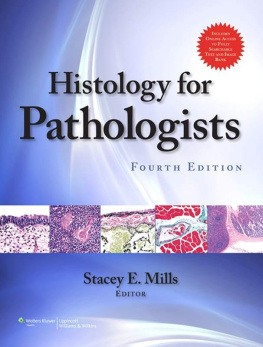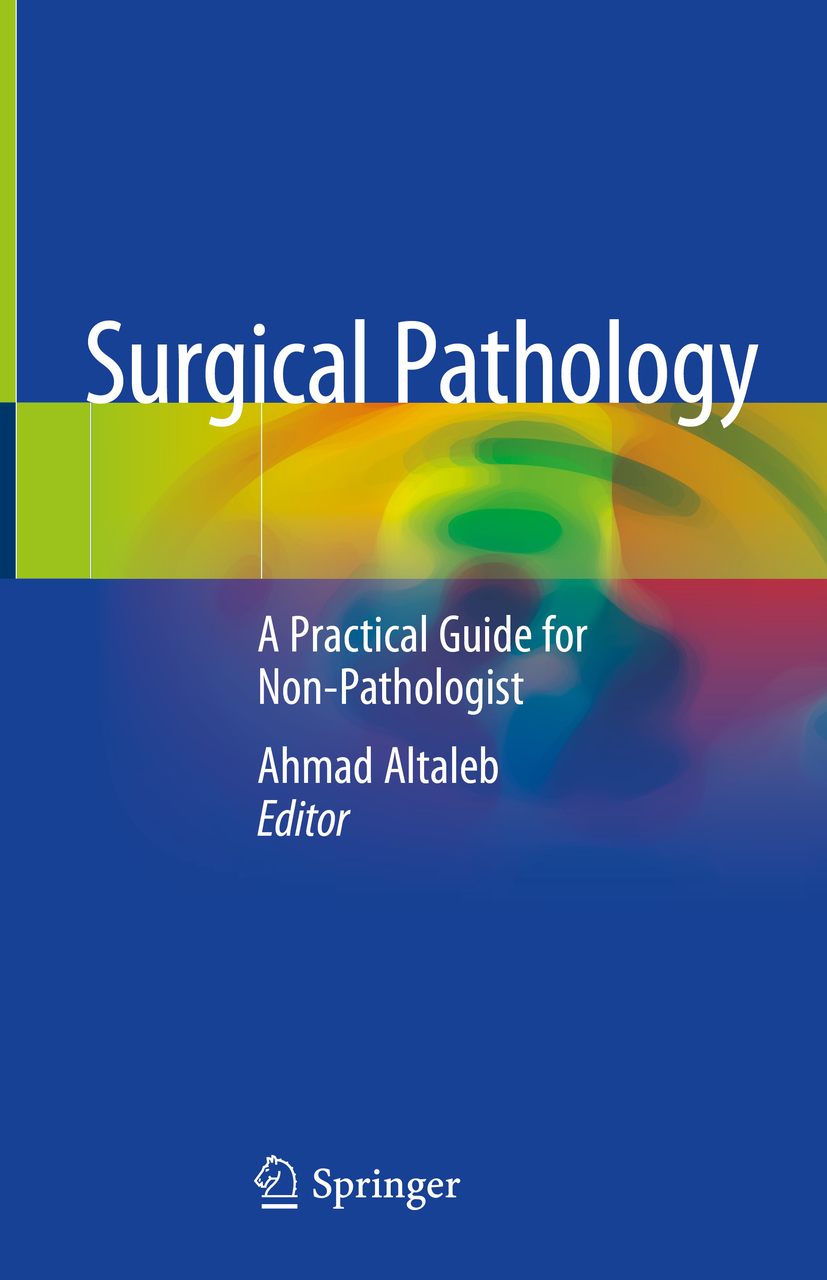Surgical Pathology
A Practical Guide for Non-Pathologist
1st ed. 2021
Editor
Ahmad Altaleb
Histopathology Department, Mubarak Alkabeer Hospital, Jabriya, Kuwait
ISBN 978-3-030-53689-3 e-ISBN 978-3-030-53690-9
https://doi.org/10.1007/978-3-030-53690-9
The Editor(s) (if applicable) and The Author(s), under exclusive license to Springer Nature Switzerland AG 2021
This work is subject to copyright. All rights are solely and exclusively licensed by the Publisher, whether the whole or part of the material is concerned, specifically the rights of translation, reprinting, reuse of illustrations, recitation, broadcasting, reproduction on microfilms or in any other physical way, and transmission or information storage and retrieval, electronic adaptation, computer software, or by similar or dissimilar methodology now known or hereafter developed.
The use of general descriptive names, registered names, trademarks, service marks, etc. in this publication does not imply, even in the absence of a specific statement, that such names are exempt from the relevant protective laws and regulations and therefore free for general use.
The publisher, the authors and the editors are safe to assume that the advice and information in this book are believed to be true and accurate at the date of publication. Neither the publisher nor the authors or the editors give a warranty, expressed or implied, with respect to the material contained herein or for any errors or omissions that may have been made. The publisher remains neutral with regard to jurisdictional claims in published maps and institutional affiliations.
This Springer imprint is published by the registered company Springer Nature Switzerland AG
The registered company address is: Gewerbestrasse 11, 6330 Cham, Switzerland
This work is dedicated with great appreciation to my parents, wife, children, and to my country Kuwait.
Foreword
To the public and even the health-care professionals, pathology is like a black box where specimen went in and reports come out in a few days. Nobody knows what happened in the black box and people only care when the report delayed or when the error occurred. Physicians and surgeons often puzzled with some of the terms used in the report. What cribriform, basaloid, alveolar, hobnail, and herringbone mean to the patient? Why does error occur in pathology? The old proverb says, Difference in profession makes one feel worlds apart. The intention of this Notebook of Surgical Pathology is to open that black box and bridge that knowledge gap between pathology and other health-care professions.
This book represents a joint effort of education leaders in both pathology and surgery. It covers a wide range of topics from describing the technical process of pathology and the commonly used terms in pathology reports to explaining the limitations of the pathology as a subjective specialty and different stages of specimen handling and processing that could cause error in the final diagnosis. I am particularly impressed with the figures and diagrams that help the authors to explain a complicated process in a visual, simplistic way. In my opinion, this book will be an excellent reference not only for practicing physicians but also, probably more importantly, for medical students and first-year pathology residents to gain a quick understanding of the basics of pathology laboratory.
I applaud the efforts made by the authors and the novel concept of this book. I look forward to seeing the final print in the medical literature.
Zu-hua Gao
April 5, 2020
Preface
This book makes no claims to be a textbook of surgical pathology as many aspects of this specialty are not included. It is rather a collection of summaries in the form of infographics/mind maps and illustrations, in an attempt to simplify major concepts of surgical pathology through high-yield fact pages designed for the busy surgeon and health-care professionals. To achieve this goal, it was deliberate to reduce the text and rely more on visual representations in order to communicate information and knowledge at glance.
The idea to prepare this work evolved from my observations over the years. I have noticed that the vast majority of surgical colleagues including trainees or residents have no clue about the pathologists task and the practical aspects inside the pathology laboratory.
Focusing solely on the aforementioned issue, I decided to abandon discussing pathologic entities and histologic features of diseases, as these can be learned from major textbooks like Rosai and Ackermans or Sternbergs Diagnostic Surgical Pathology.
So, the main purpose of this book is to provide a succinct background of practical surgical pathology, its important terminology, concepts, and some technical aspects. It is also intended to bridge the gaps between pathology and surgery as well as other health-care professionals.
I hope you enjoy this book and find it very useful in your practice.
Ahmad Altaleb
Kuwait
Images are among the strongest stimuli to the imagination. This is why microscopic observations have been so fertile in biomedical science. Surgical pathologists spend a great part of their lives peering through a microscope, which activity may be called diagnostic recognition. They try to match the image of what they see with a preexisting image stored, along with a huge number of others, in the memory
Frank Gonzlez-Cruss, MD.
Gonzlez-Cruss F. A quick sketch of the surgical pathologist, from nature. Semin Diagn Pathol. 2008;25(3):1305.
Acknowledgments
I owe a great debt to many individuals for their inspiration and support.
I acknowledge my outstanding pathologist, teacher, and colleague, Dr. Issam Francis, who inspired me during my training and was a source of consistent motivation to learn pathology. I am grateful to Dr. Sundus Hussein, my previous pathology program director, for her continuous support and encouragement. Also, I would like to thank all senior and junior pathologists who helped me one day to learn pathology.
It is important to acknowledge the assistance of Springer Nature associate editor Mr. Wyndham Hacket Pain for his most helpful assistance from the first contact with him, and all Springer Nature staff who were very cooperative and available whenever needed.
Contents
Part IIntroduction
Eisa Lari , Ali Lari and Khaled Alyaqout
Esperana Ussene
Part IIThe Surgical Pathology Report
Esperana Ussene
Ahmad Altaleb
Ahmad Altaleb and Nicolas Kozakowski
Part IIIThe Journey of Specimens
Ahmad Altaleb
Ahmad Altaleb
Ahmad Altaleb
Ahmad Altaleb
Part IVSpecimens Essentials!
Joo Palma
Joo Palma
Part VThe Intraoperative Consultation
Ali Lairy and Khaled Alyaqout
Ahmad Altaleb
Ahmad Altaleb
Part VIThe Biopsy
Ahmad Altaleb
Part VIIAncillary Studies in Surgical Pathology

